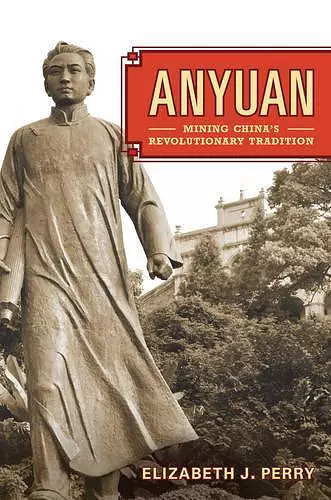Anyuan
Mining China's Revolutionary Tradition
Format:Hardback
Publisher:University of California Press
Published:25th Sep '12
Currently unavailable, and unfortunately no date known when it will be back

How do we explain the surprising trajectory of the Chinese Communist revolution? Why has it taken such a different route from its Russian prototype? An answer, Elizabeth Perry suggests, lies in the Chinese Communists' creative development and deployment of cultural resources -- during their revolutionary rise to power and afterwards. Skillful "cultural positioning" and "cultural patronage," on the part of Mao Zedong, his comrades and successors, helped to construct a polity in which a once alien Communist system came to be accepted as familiarly "Chinese." Perry traces this process through a case study of the Anyuan coal mine, a place where Mao and other early leaders of the Chinese Communist Party mobilized an influential labor movement at the beginning of their revolution, and whose history later became a touchstone of "political correctness" in the People's Republic of China. Once known as "China's Little Moscow," Anyuan came over time to symbolize a distinctively Chinese revolutionary tradition. Yet the meanings of that tradition remain highly contested, as contemporary Chinese debate their revolutionary past in search of a new political future.
"Meticulously researched and elegantly narrated... It is a book well worth reading." -- Carla Nappi New Bks In East Asian Stds "This is Elizabeth Perry at her best: the book achieves its aims and is a pleasure to read." -- Timothy Cheek Journal of Asian Studies "Theoretically stimulating, empirically rich, and analytically penetrating ... essential reading for students of Chinese Communism." The China Journal
ISBN: 9780520271890
Dimensions: 229mm x 152mm x 28mm
Weight: 726g
412 pages